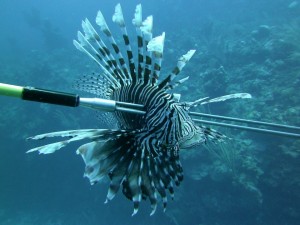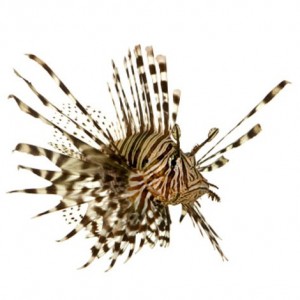Update: Eating Lionfish may be dangerous ???
Ciguatera is a nasty thing to experience. When I first read the email regarding ciguatera, I did my due diligence as well as I was able given the time I had on hand and my perceived sense of urgency. I have friends that eat lionfish frequently and would hate to think I could have prevented them from contracting it had I drug my feet. So I posted what I knew along with what I was told.
Looks like I was misguided by believing the media. Don’t let my wife know I said this, but I think I was wrong. Or at least not giving the FULL story.
Some of the things I am picking up all over the place, various boards, websites, etc (each is linked back to source):
also:
and the one that makes the MOST sense:
So can a lionfish give you ciguatera? Yup. But so can the snapper, grouper, or other predator fish located on the same reef. And pretty much the same percentage chance. To date, I have been unable to find ANY reference to a ciguatera poisoning in the US caused from eating lionfish.
Just to recap, ciguatera is a form of toxin is not specific to lionfish, but is common to all predatory fish in the area. It’s all down to whether the particular dinoflagellates are common in that area. If they are, ALL predator fish in that area would be probable carriers.

While I cannot be responsible for your choices, based upon this more enlightening data, if I would eat a grouper, or snapper caught off a local reef, I’ll be eating lionfish from local waters as well….at least until I hear of ciguatera outbreaks where I am catching them. Then I wouldn’t eat ANY fish from that area….

Looking around, it seems like the “kitty-cat” test is as reliable as any to figure out if your catch has the bug – which is to say it isn’t reliable at all. But at least now there is a reason to actually have a cat.
And a reason to hope for a lethal fish…
Thanks DB for all your investigative reporting. Reading the article implied that these fish were locally collected and tested. What crappy reporting. You have put my mind at ease.
When I was a kid fishing in the Keys, I saw a boat pull up to the dock and watched a couple of Cuban guys tossing at least a dozen large barracuda on the dock to sit in the sun. All the fish were over four feet long. Even at a young age, I knew you could get sick from eating big barracuda. There was a young kid on the boat who spoke english and he explained to me that they only will eat the ones that attract flies. Sure enough there was one barracuda the flies did not go near. They tossed that one and filleted the rest. I recently saw the same technique being used in the Bahamas where barracuda are preferred over snapper or grouper. I asked the Bahamian cleaning the fish how often they throw one out, and he said very rarely, but it does happen.
I doubt there is any scientific proof that would support this method, but it can’t hurt.
Regarding the flies on fish theory – how hard would that be to prove? Why wouldn’t someone try to find out one way or the other?